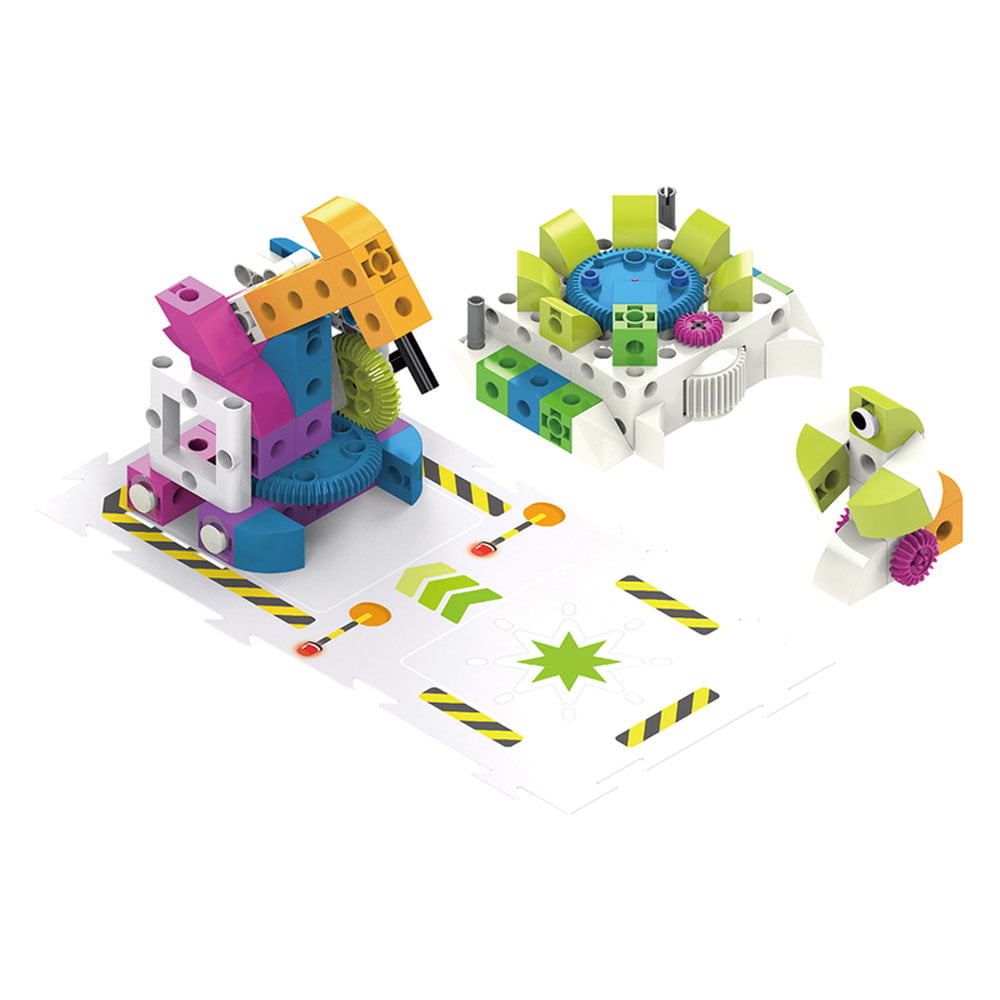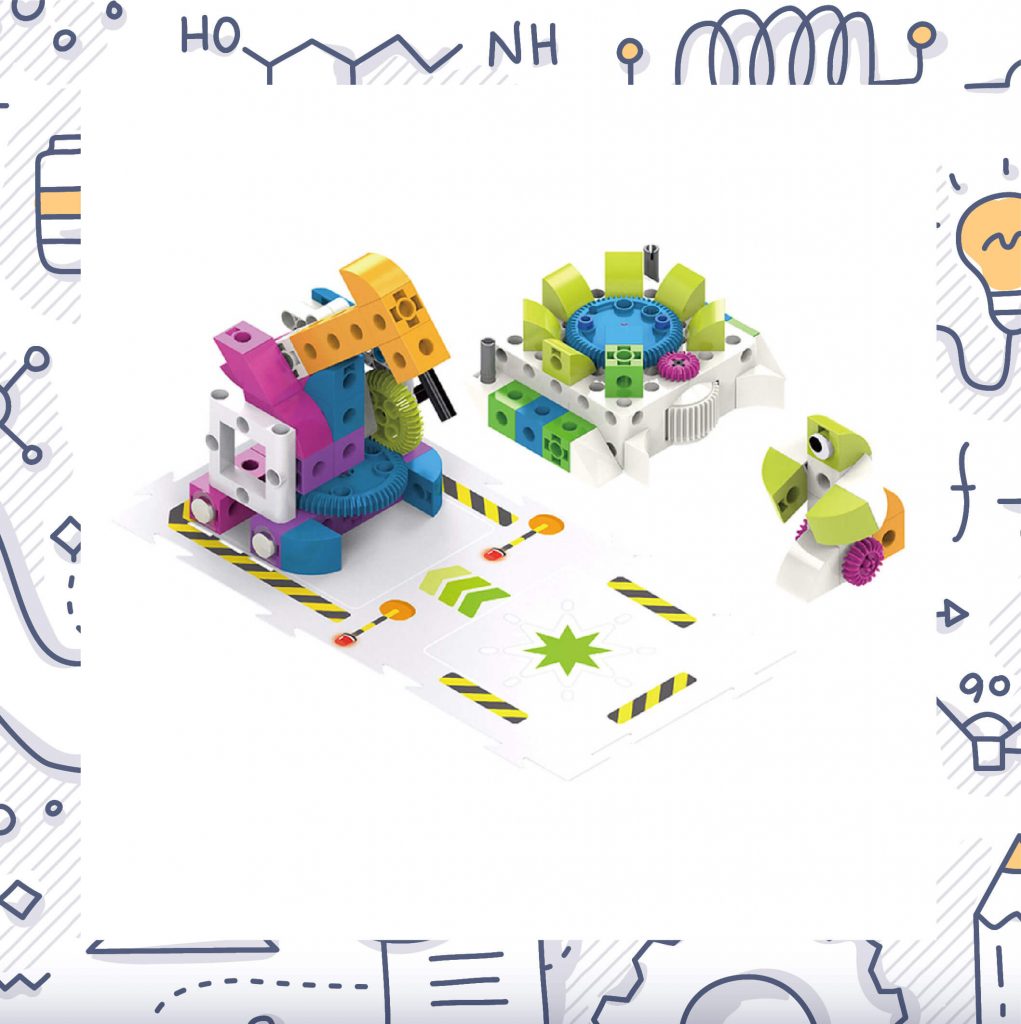coding

Each lesson is a different story – a challenge that teaches children the basic programming principles they need in order to bring to life the structures they build with their own hands.
- How can I design a smart code that will make a difference?
- How can I build mechanisms that will allow my robot to perform tasks?
- How can I program a robot to work without my presence?
By combining operating mechanisms with short, smart codes we can tackle any problem quickly and efficiently!
So let’s construct!
This cute sandwich robot teaches algorithmic thinking and develops STEM skills in preschoolers. It does not require the use of a tablet or computer to program it. Programs are created simply, with a series of command cards that create the algorithmic “path”. On the track, the robot moves in different directions, activates mechanisms, turns on LED lights, plays sounds and responds to different action cards.
Kids First Coding & Robotics also teaches physics, engineering and problem-solving skills through construction and programming. For this reason, Kids First Coding & Robotics was selected by WRO Hellas, as proposed equipment for the first pilot STEAM Kindergarten Educational Action: «“A walk in my city”, where the kindergarten children will build their first algorithm and will present their city in a simple way, while developing their artistic and social skills.
Purpose of the program
The main goal of the program is to cultivate critical thinking in students and help them think methodically towards solving a specific problem. They will learn how to build structures and design the appropriate algorithms to handle these structures.
Program info
Age: 1st and 2nd grades of Primary school
Courses: 30
Duration: 90′
Number of students: 12
Interdisciplinary Knowledge
- Language: Communication skills, development of oral speech and information management, development of argumentation
- Mathematics: Creating patterns, creating complex algorithms, creating constructions with specific pieces
- Environmental study:Linking scientific knowledge with everyday activities
- Technology: Creating complex models to perform a specific purpose
